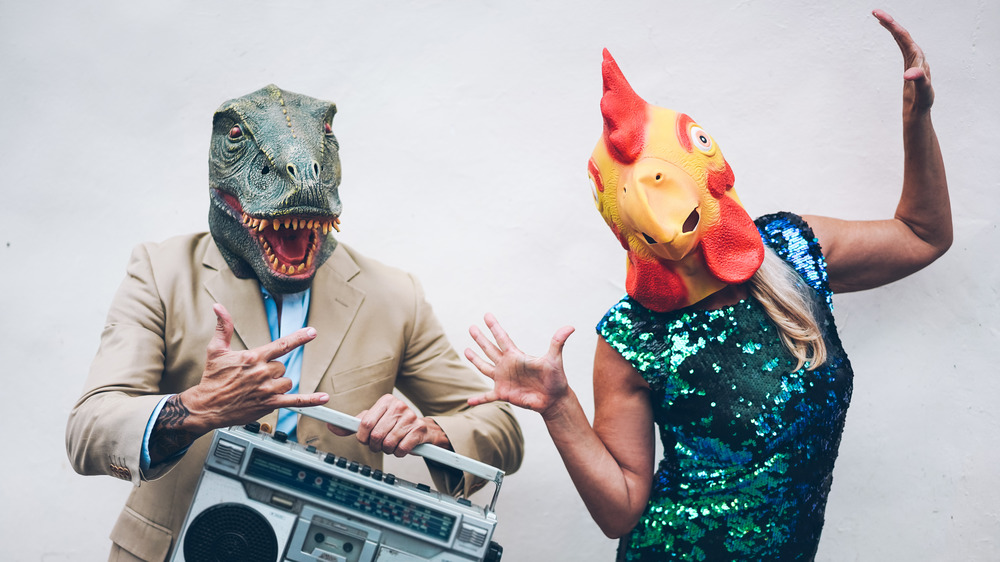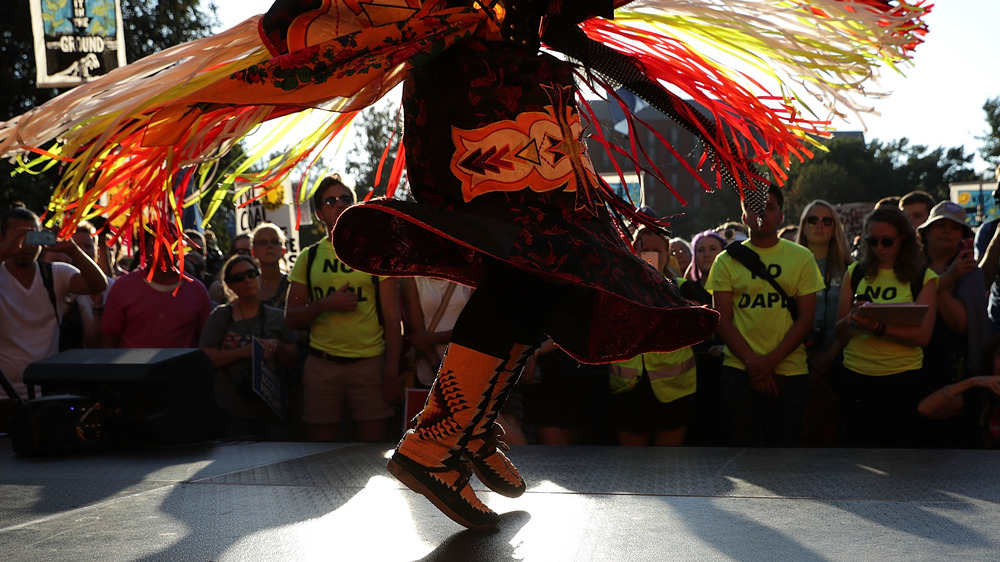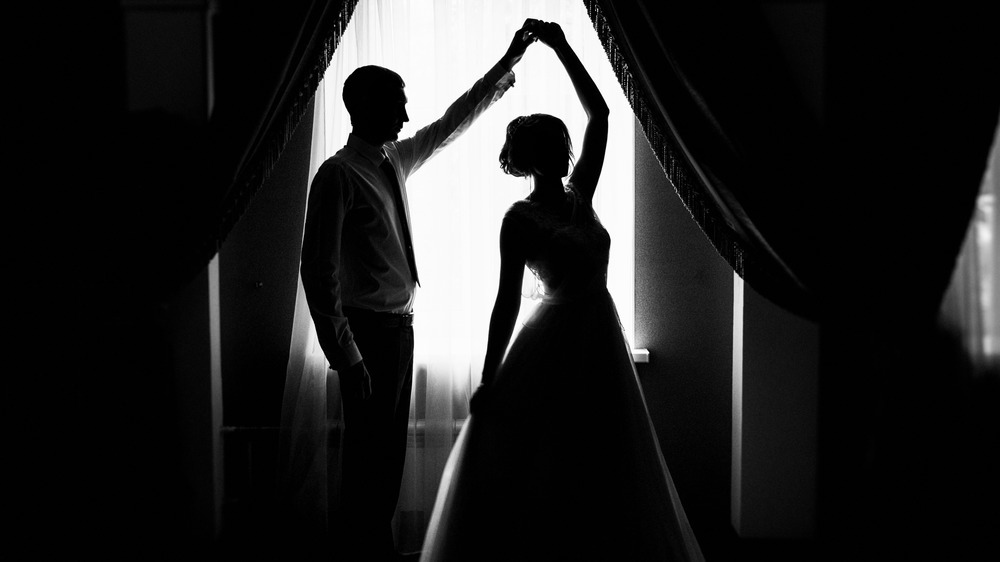The Real Reason Dancing Was Once Illegal
Long before kids were completing the "Twerk for Me" challenge on TikTok, before sidewalk breakdance competitions and people doing the Twist in the 1960s to Chuck Berry's timeless tune, dance developed as one of the oldest and easily accessible forms of expression and cultural vibrancy. No literacy necessary, minimal tools, all ages were capable, and at first, no instruments other than our built-in instrument: voice.
To the Maori, traditional haka developed from a war dance into a "symbol for community and strength," per Haka Tours New Zealand. Among Aboriginal peoples of Australia, as described by the Watarrka Foundation, dance is used for storytelling and rites of passage such as weddings and funerals. A quick look at the 31st annual Gathering of Nations on YouTube, where members of 700 Native American tribes attended, shows that dance is a thing of heritage, honor, and spiritual insight. The Dogon tribe in Mali dance and wear elaborate masks to respect the dead, as seen on YouTube. Greek Khastorias, Irish Step Dancing, Japanese Bon Dances, gypsy dances from the Indian state of Rajasthan: the list goes on and on.
So how is it this most basic of things that people can do with their own bodies has been made illegal by the state time and again? In the U.S. and elsewhere, governments have repeatedly gone all Footloose on dancing, particularly contemporary dancing. Is it a simple matter of cracking down on so-called youthful rebelliousness? Some stuffy, sourpussed morality police hating on people enjoying their lives?
Two big no-nos: unregulated and unreligious
Granted, there are some obvious differences between centuries-old tribal customs related to life and death, and, say, the Macarena. But at their core, both serve a similar function of society telling its own story. They're a way for values to be shared, no matter how those values might be judged as relevant or trivial, and provide critical insight into the mores of the age, as this academically-leaning thread on Research Gate discusses.
So if, prior to 1973, it was illegal for men to dance together in public in Demark, as the Estonian culture-and-commentary site Muurileht describes? Or if, as Huff Post describes, even swaying to a beat is currently illegal in Kuwait? Or, as the BBC reports, parties get raided by authorities in Iran, and dancers can not only be jailed, but flogged? Or, if in Washington, D.C., "Women cannot be employed to dance with men in a dance hall. Moreover, nobody is permitted to dance for longer than 12 hours in any given 24 hour period," as the legal resources site HG.org outlines? Yeah, it says a lot about a culture and its people.
Across the board, cases of illegal dancing share a couple key similarities. First, dance becomes an automatically anarchic act when unregulated by traditional choreography, like what Baylor University president described as "obscene or provocative" in 1996, per The New York Times. And the second similarity? Well, you guessed it: a big helping of Abrahamic religions' squeamishness toward sexual matters.
The waltz was once banned by the Pope
Squeamishness toward sexual matters — with all the Puritanical stank face you can envision — reveals a connection between dance and sex that doesn't necessarily exist without a viewer's own prurient preoccupations. Maslow's Hammer says, "If all you have is a hammer, then everything looks a nail," right? Well, if all you have is an obsession with clamping down on "ungodly" acts, everything starts to look salacious.
To wit: the waltz, of all things, was the first dance in history to be officially banned, and by no less than Pope Leo XII, and only as recently as 1820. As Merriam Webster says, the choice was directly related to what American etiquette books and conservative magazines of the time described as, "the giddy, exciting mazes of the licentious waltz, like so many French or Italian Opera girls." These American moralizers set the stage for nearly every snobbish, theologically-laced crackdown on ragtime dancing, jazz, rock, hip-hop, you name it. Similar anti-dancing rules took root over time in other, non-Abrahamic countries such as Japan, where dancing past midnight was illegal until 2016, per The Japan Times, but these laws stem from non-religious reasons more related to notions of public order.
So what are we happy, fleet-footed few to do, besides follow Gwen Stefani's 2001 sage advice, "You got me feelin' hella good / So lets just keep on dancin'"? Not much, maybe, except keep doing it long enough for it to become an unassailable tradition.


